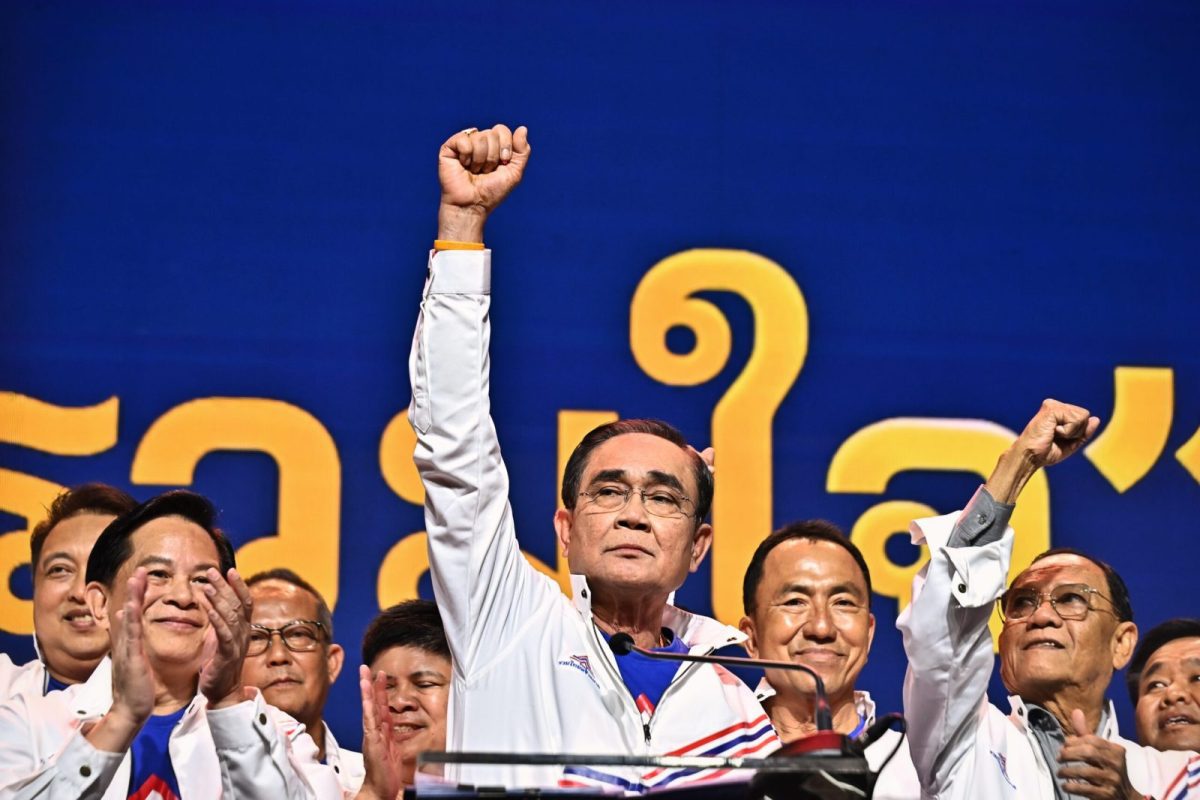Global Courant 2023-05-17 09:19:01
The last time voters in Thailand went to the polls was in 2019, after five years of repressive military dictatorship. Thai voters spoke nervously about their democratic aspirations and allowed a military-led government to come to power.
Now, after four years of functioning parliamentary democracy, Thai voters have roared. They appear to have done so in Sunday’s parliamentary elections firmly rejected the junta and its successors, the military plenipotentiaries.
Read also: A resounding voice for change in Thailand
Thailand’s most progressive party, Move Forward, appears to have secured the most seats in the new parliament. Closely followed by the more established and also liberal Peua Thai party of the polarizing Shinawatra dynasty.
Bhumjaithai follows them in third place. This rural-based, more traditional party of patronage politics was recently the coalition partner of the previous government.
Far behind, in fourth and fifth place, are the two military plenipotentiaries: Palang Pracharat, led by former Deputy Prime Minister and Army Chief Prawit Wongsuwan, and United Thai Nation, led by current Prime Minister Prayut Chan-ocha, leader of the coup of 2014.
Resistance to the role of the military
The result reflects a huge boost in support for Move Forward, which won half of the seats in the 2019 election. Now it looks like Move Forward will take all but one of the 33 seats in parliament in Bangkok, which has historically been seen as Peua Thai’s stronghold.
It’s hard not to wonder about the strong performance of Bangkok’s recently elected governor Chadchart Sittipuntan independent who has set new standards in transparency, accountability and sheer hard work may have influenced voters’ choices in Bangkok.
Move Forward has a similar leader in the Harvard-educated former businessman Pita Limjaroenrat – someone who is both well-educated and business-minded.
The formation of a new government strongly opposed to the military’s involvement in politics seems logical, and could potentially usher in a new progressive, democratic era in Thai politics, with Pita as the new prime minister.
This could mean a transformation for all of Southeast Asia, especially the mainland countries. Democratic institutions have suffered in the region in recent years, with Myanmar’s 2021 coup and Cambodia’s turn to increasingly autocratic rule under Hun Sen.
The dramatic drop in support for Thailand’s incumbent government likely reflects a general feeling among the Thai people that it was simply time for the military to leave.
Prayut has been prime minister since May 2014, when he became a military officer coup against the democratically elected government of Yingluck Shinawatra. Since then, the Thai people have grown tired of his autocratic style of rule, hot temper and mediocre management of the economy.
To speculate further, Thais might think it’s the military’s job to oversee a monarchic transition from Rama IX to Rama X is now really complete.
No guarantees
But the election results also do not guarantee that the Thai opposition will be able to form a government.
The main challenge for the leading parties is the illiberal draft of the 2017 constitution. Because it contains a clause allowing 250 unelected junta-appointed senators to participate in a joint meeting to choose the next prime minister, the military proxy parties, in theory, still forge a coalition to maintain power.
If they got the support of the parties that made up the previous government (Bhumjaithai and the Democrats), they could form a governing coalition with the 170 or so seats they all won in Sunday’s vote, along with the support of the 250 junta-appointed senators.
If this happened, they would be a minority government, unable to pass laws without opposition support and subject to no-confidence motions. But perhaps they hope to lure MPs away from the opposition, using various incentives such as ministerial positions, to gain a majority in the lower house.
The second challenge for the opposition parties is to form a democratic coalition. Will Peua accept Thai Pita as prime minister, instead of one of its three own candidates, Srettha Thavisin, Paetongtarn Shinawatra or Chaikasem Nitisiri, as prime ministerial candidate? Would Peua Thai try to get Paetongtarn – the daughter of former Prime Minister Thaksin Shinawatra – in the role?
Another important question is whether Peua Thai would agree with Move Forward’s controversial policy of reforming Thailand’s draconian lese majeste law. Move Forward wants the law, which criminalizes insulting the monarchy, making it less vulnerable to being used as a weapon as a way to attack political opponents. The party insists this is not a step towards a republic.
The chances of the two parties forming a working coalition would be increased if they could get Bhumjaithai into government. The party has swung back and forth between both sides of the political spectrum in recent decades.
But this would mean that Bhumjaithai’s positions of both Move Forward and Peua Thai to reverse Thailand’s controversial decision last year to decriminalize marijuana. Both parties propose to limit its use to medical purposes.
Bhumjaithai leader Anutin Charnvirakul, the current health minister and a cannabis advocate, has insisted that changing the cannabis law in Thailand is non-negotiable for his party.
Threat of ‘judicial coup’
The third challenge facing the opposition parties is perhaps the most concerning. This is the possibility that Thailand’s conservative establishment will find a way to invalidate the election results through legal action, or a “judicial coup” as it has come to be known in Thailand.
There are strong precedents for this, as previous Progressive parties have been dissolved by court rulings – an accident that has yet to befall any of the Conservative parties.
Pita is currently facing a lawsuit related to his ownership of shares at a media company. Meanwhile, Peua Thai faces dispute related to allowing “outsiders” to run her affairs.
There is reason to believe that we will know the election results sooner than in 2019. The Electoral Commission appears to have been more proficient at counting votes this time around and does not have to decide how to implement a complicated formula to allocate seats on the party list ways. This means that the joint meeting of Parliament must happen more quickly and that a coalition will soon emerge.
But only then will we have any assurance that the voices of the people have really been heard.
Greg Raymond is a teacher at the Australian National University.
This article has been republished from The conversation under a Creative Commons license. Read the original article.
Similar:
Loading…








